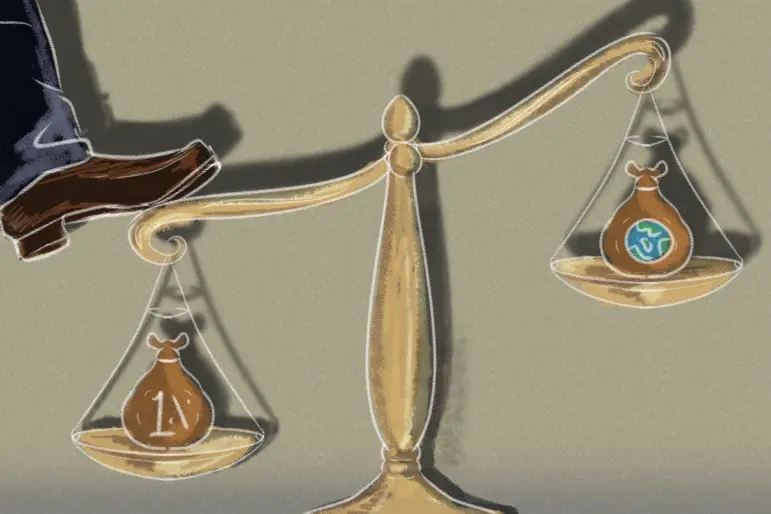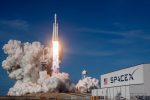It’s no secret that the average tech bro and hustle culture entrepreneur loves Elon Musk — and the appeal is understandable, to a degree. His online presence shakes markets and changes lives, and despite several controversies that have followed in his wake, Musk remains a genius when it comes to marketing his personality. He’s branded himself as a forward-thinking visionary who would put anything on the line for the sake of progress, and he’s carved a spot for himself as an inspiration for everyone who resonates with his innovative presentation.
At the same time, however, people have hurled some harsh criticisms in his direction, most of which stem from his billionaire status. After all, outside of the simple fact that rich people have money because they make money, there are only so many ways we can defend their wealth. And while it’s easy to understand the idealistic and individualistic justifications for Musk’s success, I struggle to accept any moral one.
Of course, people still try to defend him. The pervasive mythology of Elon Musk as the self-made humanitarian circulates so often on motivational Instagram accounts that I may as well have each cheesy slogan memorized.
Regardless of the narrative Musk tries to sell, it’s one that is far from the truth. You might be surprised to learn that his parents benefited nicely from purchasing an emerald mine — his father recalled that they had so much money they couldn’t even fit it all into their safe. Needless to say, Musk grew up rather privileged as a result.
Musk comes from an extreme generational wealth that likely gave him a head start over the rest of us. He might have built his companies himself, but should we conveniently ignore a $28,000 gift from his father? Musk staunchly denied this happening, though he also denied that his family ever owned an emerald mine despite infinite sources to the contrary, and would go on to admit his father contributed to a $200,000 angel funding round later on in his career.
Plus, despite Musk’s “humble” beginnings and his supposed ability to speak to the little guy, Tesla continuously mistreats its workers, a habit that heightened during the pandemic, with new accusations popping up every other week. These accusations serve as additional entries to Tesla’s startling history of worker mistreatment, which includes high rates of injuries, mandatory overtime, low wages and Elon Musk’s staunchly anti-union stance.
Factory workers in California were working up to 60 hours a week during the pandemic, and at an increased risk of catching COVID-19 due to frequent worker turnover. Other employees were fired for accepting the company’s offer to stay at home from fear of an outbreak. These fears were justified, however, seeing as hundreds of Tesla workers tested positive — even as Musk advocated for opening up the country.
And during all the chaos, Musk’s net worth tripled to around $73 billion as Tesla stocks soared higher than ever.
Another common defense of Musk is that his unfortunate quirks stem from the kind of brilliant mind that knows to prioritize progress over all else. When it comes to the big picture, who cares if he’s a little harsh or has a penchant for screaming at his employees? At least he’s doing concrete good. Right?
For example, Musk recently donated $150 million to various charities. But I have to point out that with his net worth in mind, this would be pocket change to the average person. Yes, it is still impressive, but parting with only the smallest fragment of his net worth hardly points to any greatness of character. I’ve donated the occasional dollar, and nobody has heralded me as the second coming for it.
Furthermore, despite contributions made by the likes of Bill Gates, Warren Buffet and, yes, Elon Musk, billionaire philanthropy doesn’t always deliver on its gilded promises. Many of the pet projects that allegedly push humanity further are either failures (remember the hyperloop, anyone?) or overhyped to the point of deceit.
Just look at Musk’s famous (or infamous, depending on who you ask) plan for colonizing Mars. This lofty goal illustrates just how shallow his understanding of bettering the world is. SpaceX, the company responsible for carrying out this mission, launched 26 spacecraft in 2020 alone, the most out of any other launch provider including NASA. But just one SpaceX launch burns 29,600 gallons of kerosene, resulting in CO2 emissions roughly equivalent to that of 395 trans-Atlantic flights, all under the pretense of humanitarianism.
Even if we accept that billionaire philanthropy can be a force for good, space travel is a far less useful endeavor compared to more grounded efforts at improving education, reducing poverty or literally anything else. Instead, the modern-day space race is a battle of egos as a handful of people chase personal ambitions under the guise of societal development — and Elon Musk’s personal ambition is terraforming Mars.
In this manner, Musk is less concerned about saving the planet than he is concerned about ensuring he has a Plan B, one that, at his own estimations, could bring a million people to Mars by 2050, the same year that our planet and its more-than-a-million inhabitants are projected to suffer from inadequate housing, food insecurity and extreme weather patterns, just to start us off. And without any systemic changes, we still can’t guarantee that humanity won’t cause the same ecological damage to Mars as we have to Earth.
While I won’t pretend he’s an evil mastermind hell-bent on global destruction, Elon Musk isn’t a stellar guy either. His main accomplishment is that he’s a fantastic businessman, and despite any pretenses to the contrary, this skill is not synonymous with advocating for a better world.
Instead, he inadvertently (and sometimes purposefully) advocates for a prettier version of inequality with the notion that such a system should be permissible because its greatest beneficiaries are willing to toss everyone else the occasional bone. The cult of Elon Musk pretends that this inequality is okay, even good, because the intelligent CEOs know what’s up. It’s a false sense of authenticity that pretends billionaires do what they do for the sake of humanity and not some incredible, insatiable greed.
This echoes the notion of the “rich man’s burden” of Andrew Carnegie and John D. Rockefeller — a phrase that not-so-coincidentally sounds like the imperialistic “white man’s burden” and similarly argues that the masses just can’t make their own decisions with the same effectiveness as the self-made, innovative minds of those in power. The idea of the rich man’s burden asserts that inequality is good because billionaires are good.
And that is a particularly insidious argument because it devalues the rights of everybody outside of the billionaire class. The rich will invariably prioritize causes that don’t threaten their source of wealth, meaning that they will use their power to uphold unjust systems. In doing so, they will either focus on efforts that don’t matter to the average person or invest in less effective solutions to the world’s problems for the sake of profit. We can say that billionaires are all right as long as they care, but the truth is that they aren’t incentivized to help humanity too much, lest they shake the foundations on which they built their wealth.
Yet as it provides massive leeway for the whims and wishes of the billionaire class, the rich man’s burden falsely places them above us, as people to whom we ought to entrust our future — as if cutting down labor rights and compromising human health and polluting the air we breathe is not enough evidence to the contrary. It ignores the fact that Elon Musk’s impressive spending and “humble” origins can’t offset the injustices he committed to obtain his wealth.
It is one thing to acknowledge that people might deserve rewards for the goods or services they provide. It is another thing entirely to pretend the wealthy have some intellectual or moral high ground above the average person and use that to justify massive inequality.
Unfortunately, the myth of the rich man’s burden easily veers into the second category, and it ignores the fact that a good billionaire is still a billionaire.

















